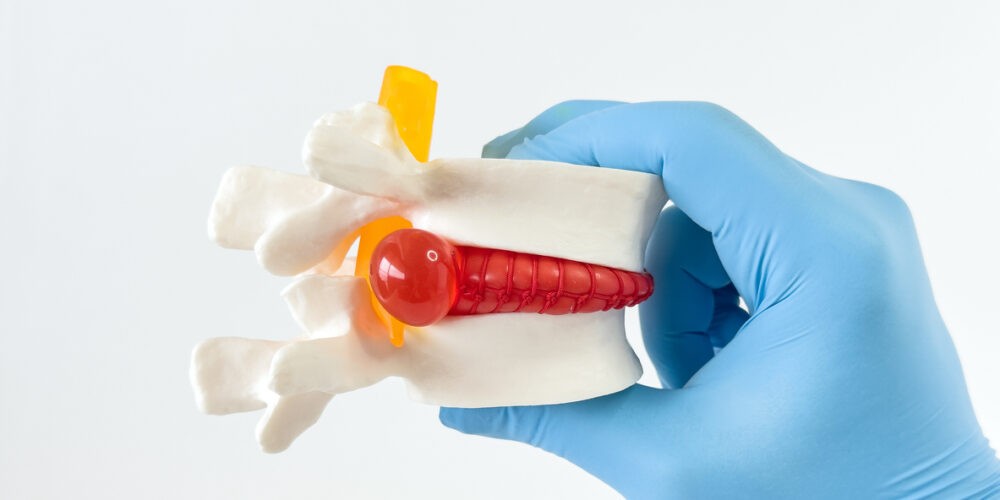A herniated disc, also called a “ruptured” disc, is a common source of neck or lower back pain. Discs are cushion-like pads that are located between the series of small bones that make up the spine. A herniated disc occurs when the outer disc layer tears and its gel-like interior comes out. The contents can irritate nerves. A herniated disc can cause pressure on the nerves or spinal cord. Fortunately, for most people, pain related to a herniated disc can be relieved without surgery.
Herniated Disc Symptoms
The type of symptoms you experience will depend on the location of the herniated disc in your spine. Herniated discs most frequently occur in the cervical (neck) and lumbar (lower back) spine. Pain is a major symptom of a herniated disc, regardless of its location.
Neck pain is a common symptom of a herniated cervical disc. You may feel shooting pain in your arms or burning pain in your shoulders, neck and arms. Your arm(s) may feel weak, numb or have a tingling sensation. Additionally, you may experience a headache at the back part of your head.
Low back pain is a symptom of a herniated disc in the lumbar spine. Sciatica is the most frequent symptom of a herniated disc in the lower back. Sciatica is shooting pain that travels through the buttocks and down the back of one leg. One of your legs or buttocks may feel weak, numb or have a tingling sensation.
If you experience loss of bowel and bladder control along with significant arm and leg weakness, you should call 911 or go to the nearest emergency department of a hospital.






